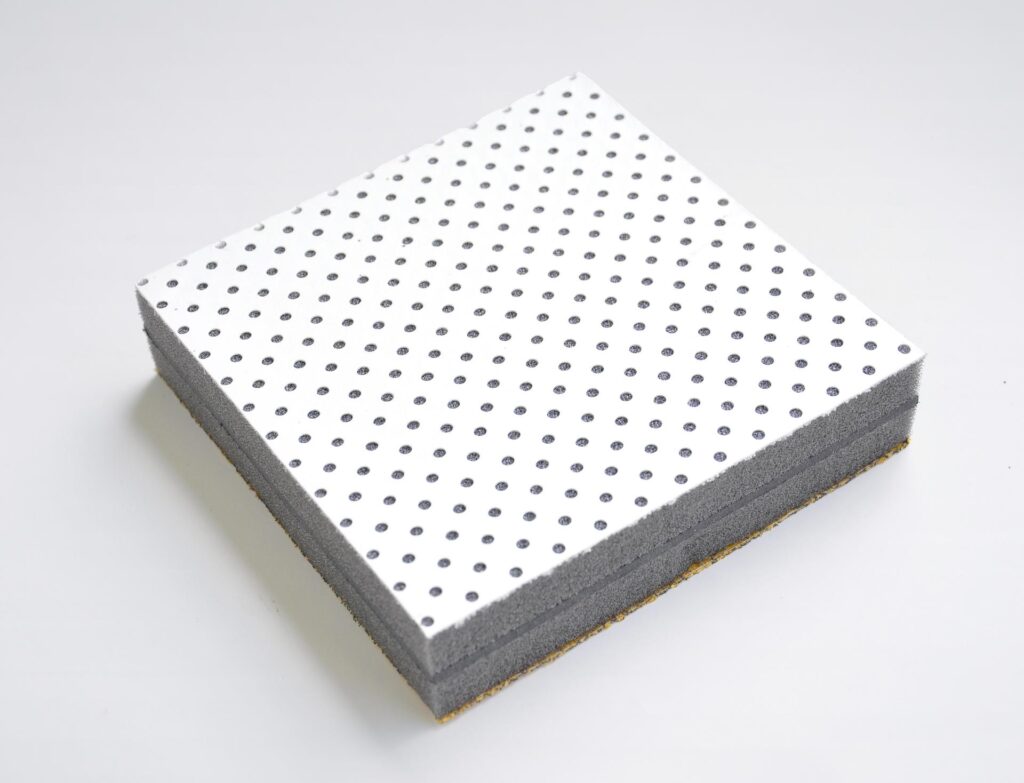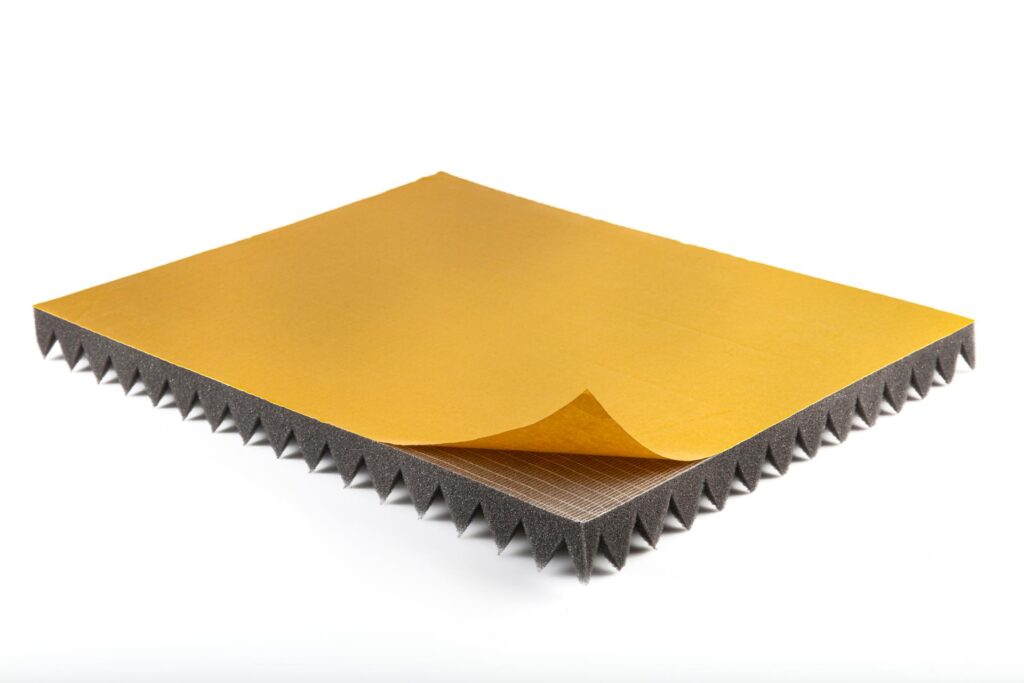Sound Insulation
Sound insulation is a fundamental step in reducing noise and creating a comfortable, quiet space. Noise can significantly affect quality of life in residential and commercial areas, which is why choosing the right type of protection is crucial. One of the most effective approaches to noise reduction is proper sealing of the space and interrupting all sound bridges (such as installations, pipes, etc.) through which sound travels.
How does sound insulation work?
The most well-known principle for noise protection is the absorption of sound waves. By using absorbent materials, sound waves are absorbed within the material’s structure and do not continue to travel through the space. This process reduces noise levels and creates a quieter and more pleasant environment.
Foam Materials for Sound Insulation
For effective and economical sound insulation, foam materials are the best choice. These materials are extremely efficient in absorbing sound and provide long-lasting noise reduction effects, making the space more peaceful.
Advantages of Foam Materials for Sound Insulation:
- High efficiency: Foam materials effectively reduce sound transmission between rooms and from external noise sources.
- Cost-effectiveness: Foam is affordable and significantly improves room acoustics.
- Easy installation: They can be easily installed on walls, ceilings, floors, and other surfaces.
- Versatile application: Ideal for residential spaces, commercial buildings, industrial facilities, and ventilation systems.
Main Applications of Foam Materials for Sound Insulation:
-
- Sound insulation in residential spaces: Foam materials can effectively reduce noise in apartments, houses, and other residential buildings.
- Wall and ceiling insulation: Used for insulating walls and ceilings, creating quieter rooms and reducing noise transmission from other areas of the building.
- Insulation in industrial spaces: Foam materials are extremely useful in reducing noise in industrial plants, workspaces, and warehouses where noise levels are often high.
- Ventilation system insulation: Foam can help reduce noise generated by ventilation systems and air conditioning units.
- Noise protection in public areas: Ideal for soundproofing conference halls, music studios, restaurants, nightclubs, and other public venues where good acoustics are important.
- Cars and compressors: Foam is also used to insulate noise from compressor housings and in vehicles, reducing engine and mechanical part noises.
Why Choose Foam Materials for Sound Insulation?
- Cost-effective: Foam materials are affordable for a wide range of applications, making sound insulation accessible.
- High performance: They provide excellent sound absorption, creating quieter environments.
- Quick installation: Easy to install, allowing for fast implementation in any space.
- Versatility: Ideal for residential, commercial, industrial, and technical applications.

